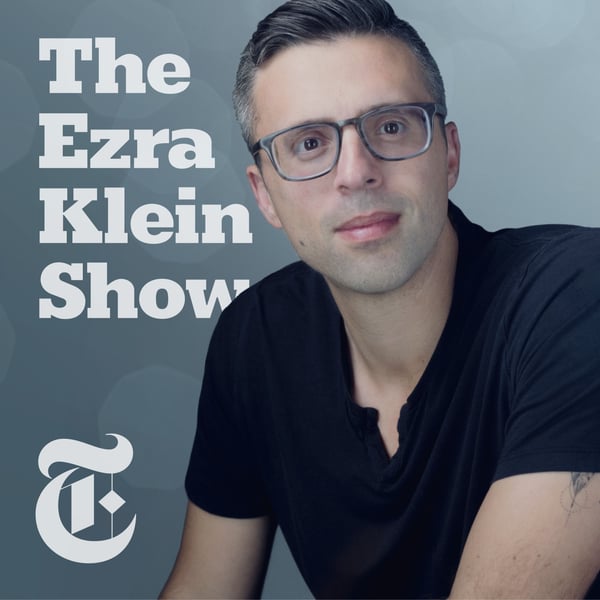Can the West Stop Russia by Strangling its Economy?
The Ezra Klein Show
New York Times Opinion
4.6 • 11K Ratings
🗓️ 1 March 2022
⏱️ 95 minutes
🧾️ Download transcript
Summary
Transcript
Click on a timestamp to play from that location
| 0:00.0 | I'm Ezra Clan and this is the Ezra Clancho. |
| 0:22.8 | The world has been transfixed for the last week by Russia's invasion of Ukraine and |
| 0:28.0 | Ukraine's remarkable heroic resistance for the same. |
| 0:31.7 | You can see these amazing chilling images on social media, on traditional television. |
| 0:38.6 | And so it's easy to follow that side of the war, but that is not the only theater of |
| 0:42.6 | this war. |
| 0:43.6 | There's this other battle playing out in the financial markets and that war is harder |
| 0:48.3 | to see, but in the past few days it is escalated from a limited counter strike into a ferocious |
| 0:54.8 | counter attack. |
| 0:56.6 | It is a war that might decide what happens ultimately in Ukraine and it's a war whose |
| 1:01.6 | effects are not going to be limited to what happens in Ukraine. |
| 1:04.7 | We may well be watching the end of one global economic order and the birth of another. |
| 1:09.7 | The US and Europe are clear from the beginning. |
| 1:12.0 | They did not intend to get into a shooting war with Russia, not over Ukraine. |
| 1:17.0 | But they did intend to use a financial might to punish Russia if it invaded Ukraine. |
| 1:21.2 | They met the sanctioned Russia to cause financial pain to the country and particularly to |
| 1:26.3 | its ruling class, but not to crack its economy, not to cause undue harm to their own economies, |
| 1:32.1 | which are now interwoven with Russia. |
| 1:35.1 | And so in this way it looked like the logic of globalization had become inverted. |
| 1:39.5 | Rather than trade and interdependence restraining Russia from doing something like invading Ukraine, |
| 1:44.6 | it appeared to be restraining the West's ability to respond to Russia invading Ukraine. |
| 1:50.9 | And that was where things stood on Friday. |
... |
Please login to see the full transcript.
Disclaimer: The podcast and artwork embedded on this page are from New York Times Opinion, and are the property of its owner and not affiliated with or endorsed by Tapesearch.
Generated transcripts are the property of New York Times Opinion and are distributed freely under the Fair Use doctrine. Transcripts generated by Tapesearch are not guaranteed to be accurate.
Copyright © Tapesearch 2025.

